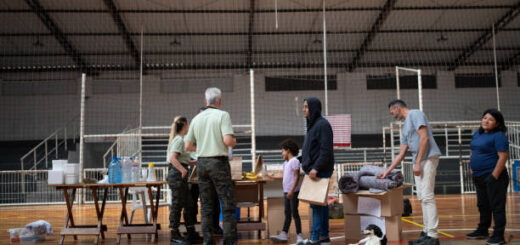Boost kids’ skills and memories with weekly game night
It is a great moment to look towards yourself and contemplate ways you can start something different for your family to enjoy with each other in the winter. If you find something that works, it can become an annual family tradition.
Family rituals are a vital element in the regularity and consistency of family life and aid in the development of children. When you discover something that the entire family enjoys, The key is to create a routine for the whole family, which is a form of “family branding.” These activities don’t have to be costly and time-consuming, or complicated.
The sharing of memories can foster a sense, structure, and connection that is the hallmark of an enjoyable family life. It is possible to look back into the future with fondness and relive those moments of shared memories that will become part of a family’s distinctive DNA with time.
With the many challenges of raising children and adjusting to life, parents must know the benefits of healthy, regular family-time routines. This is what a successful parenting experience could be like for your child when he is away from home:
“I enjoyed our time as a family. As a child on Fridays, we had pizza and games every night.”
Parents are essential in orchestrating and directing the activities around family time. It is crucial that at these gatherings with family, parents are present with their children. This includes ensuring that the devices connected to the internet are turned off.
Create the mood with a delicious meal.
If you want a night out of it, prepare a meal for the group. For example, your routine might turn into dinner with pizza followed by puzzles and games.
Little ones can knead the dough and assist in spreading the sauce and cutting or dicing, chopping, shredding, and placing the toppings. Making thin crusts from scratch can reduce the time and mess of making dough.
Cognitive and language development can be included in these activities that are easy to do every day, making them fun, engaging, and natural. Dinner will be at the table quickly, and your child will surely enjoy their meals too!
Research has identified mealtime conversations an essential in building relationships and vocabulary in children.
Pick your game
Games and puzzles are the perfect platform to create these experiences. They can help develop a range of physical and social abilities and concepts, as well as strategy use and development of language that will help your child’s academic achievement in literacy and mathFor instance, space, shape, size patterns, and sequence are the foundations of the recognition of letters, spelling, and numeracy. The main goal is to offer tiny fingers the chance to “learn the world,” improving their fine motor abilities and connecting to languages.
A few game ideas:
1.) Lego: Forever one of the most loved, Lego is great for making concepts of whole-part connections in how things are connected and also for developing fine motor abilities. It’s also a creative tool as there is a revival among adults, also known as Adult Fans of Legos ( AFOL), when it comes to using these blocks.
2.) Jenga is an exercise in physical skill comprised of 54 blocs placed in a tower at starting point. Each player takes one block off every player at a time, is replaced at the top of the building, and then destroyed. The game developed from the creator’s memories of playing and scheming with her family.
3.) Scrabble is another time-tested family favorite. It helps to improve letters, spelling patterns, and letter recognition. For younger children, it is recommended to play with adult-child teams for a learning opportunity. Playing with the tiles, arranging and moving them around, and putting tiles on a board are great exercises to develop fine motor skills.
4.) Card games of all types, such as card tricks, provide endless opportunities for interaction between children and adul andas fun across all ages. Concepts like “more than” and “less than,” discussions about probability or chance, along with sequences and groupings, are all provided with a great workout through cards.
When you play
Talking with your children about their lives can impact their language and social development. Importantly, parents need to pay attention to how much time they spend talking to their children, not only with them. What’s important is having a conversation in a circle where the adult listener is modeling, responding, and extending the previous remarks.
For instance, if a family is engaged in a game and a child says that they’re placing all blue puzzle pieces there, the parent could be able to say: “What a great idea, you can group all the puzzle pieces by color, which helps us find them.” The parent responds by explaining the skill the child is trying out, while the adult demonstrates the art of taking conversations to a new level.
Focusing entirely on playing and gamers allows them to be attentive to their child’s needs and respond to comments made by the child to help open the discussion crucial to developing children’s vocabulary and understanding.
Alongside giving positive feedback and encouraging words, parents can offer “think-alouds,” a discussion in which adults reveal their thinking processes when applying a method or solving problems. Parents can help the development of children’s brains while engaging in the process.



